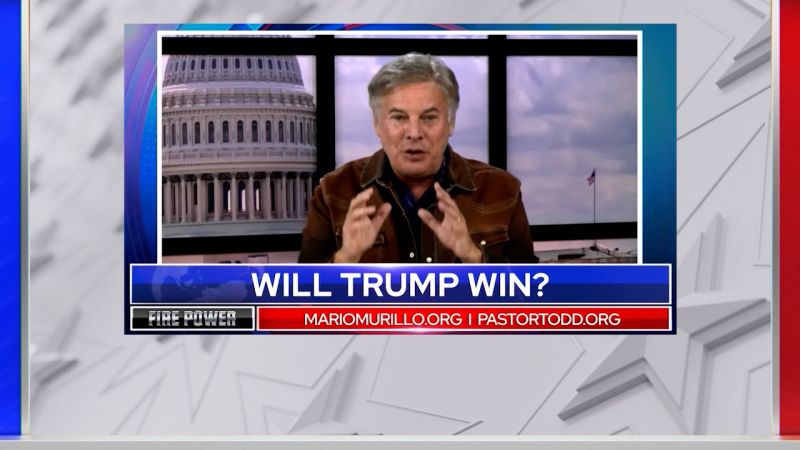
Pastor's Claims of Witchcraft Against Kamala Harris Spark Controversy
In a recent panel discussion, controversial remarks made by evangelical preacher Lance Wallnau have ignited a fierce debate surrounding Vice President Kamala Harris. Wallnau accused Harris of employing "witchcraft" in her political maneuvers, a statement that has drawn widespread criticism and concern over the implications of such accusations. This rhetoric raises significant questions about the intersection of faith and politics in today’s society.
As Wallnau voiced these allegations, he did so in the context of a larger conversation about political tactics and influence. His comments have been met with skepticism and outrage, prompting a panel of experts to weigh in on the matter. Critics argue that labeling a prominent political figure with such a term not only undermines serious discourse but also feeds into a culture of misinformation and fear-mongering. The implications of using such charged language in political rhetoric cannot be understated, as it reflects a troubling trend where political opponents are demonized in extreme ways.
Also Read:- Could the Menendez Brothers Be Freed After Decades in Prison?
- Frances Bean Cobain Celebrates Surprise Baby Arrival with Riley Hawk
The fallout from Wallnau's statements has reverberated through various political and social circles. Political strategists and commentators have begun to dissect not only the remarks themselves but also the motivations behind them. Many are concerned that such incendiary rhetoric could lead to heightened divisions among constituents, particularly as we approach an election cycle where tensions are already running high.
In the wake of these comments, Vice President Harris has largely remained focused on her policy objectives and the pressing issues facing the nation. However, the distraction posed by these allegations can be seen as detrimental to her message and goals. For Harris, addressing these unfounded claims is a balancing act—she must refocus attention on her agenda while simultaneously defending herself against personal attacks.
Moreover, the reaction to Wallnau's comments reflects a broader societal debate regarding the role of faith in politics. Many are questioning the appropriateness of using religious language and imagery in political discourse, especially when it veers into the realm of conspiracy theories and unfounded accusations. This incident serves as a poignant reminder of the need for responsible communication in the political arena.
Ultimately, the remarks made by Wallnau not only target Harris but also highlight a disturbing trend in contemporary politics where opponents are increasingly vilified rather than critiqued based on policy differences. As the political landscape continues to evolve, it becomes crucial for leaders and their supporters to engage in discussions that promote understanding and unity rather than division. The coming weeks will be critical in determining how this narrative unfolds and what impact it will have on the Vice President’s ongoing efforts to connect with voters.
As citizens, it is vital that we remain vigilant and discerning about the language used in political discourse, recognizing that the words we choose can either bridge divides or deepen them. The events surrounding this controversy serve as a cautionary tale about the power of rhetoric and the responsibilities that come with it in shaping public perception and discourse.
Read More:


0 Comments